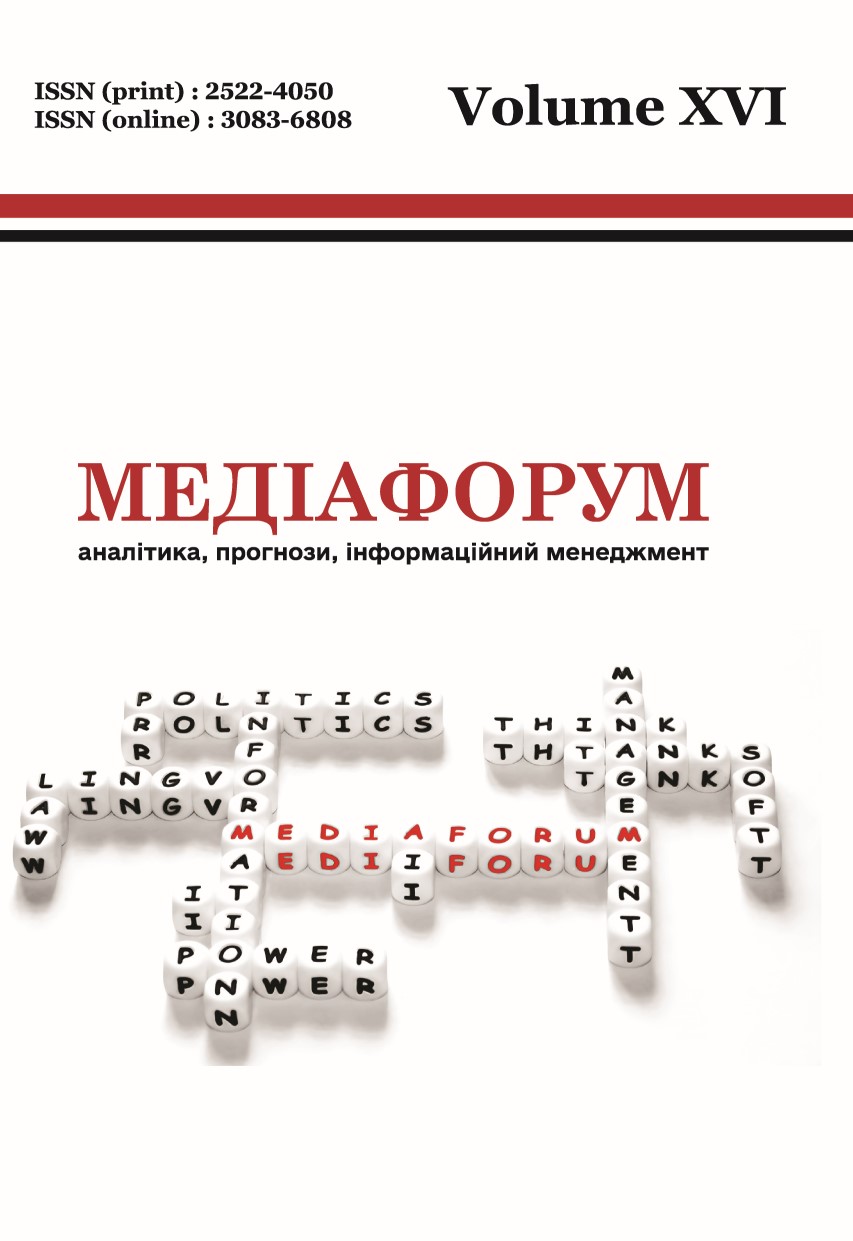Theoretical and Methodological Challenges of Using Game Theory in Modeling Political Processes
DOI:
https://doi.org/10.31861/mediaforum.2025.16.308-319Keywords:
game theory, political processes, multiple equilibria, empirical relevance, institutional context, rational choice, incomplete informationAbstract
This article examines the primary theoretical and methodological challenges of using game theory to study political processes. Special attention is paid to the issues of multiple equilibria, increasing model “baroqueness,” and difficulties in empirical verification. The analysis also addresses the role of institutional factors and incomplete information, which complicate the formalization and prediction of political behavior. The paper juxtaposes the critical viewpoints of Pierre Allan and Cédric Dupont, Donald Green, and Ian Shapiro with the approaches of Catherine Langlois and Gerardo Munck, who propose new ways to integrate formal rigor with empirical relevance. Particular emphasis is placed on how bounded rationality, cultural factors, and institutional frameworks influence the modeling of both domestic and international political processes.
Downloads
References
1. Allan, P., & Dupont, C. (1999). International Relations Theory and Game Theory: Baroque Modeling Choices and Empirical Robustness. International Political Science Review, 20(1), 23–47. https://journals.sagepub.com/doi/10.1177/0192512199201002
2. Bates, R. H., Greif, A., Levi, M., Rosenthal, J.-L., & Weingast, B. R. (1998). Analytical Narratives. Princeton University Press. https://press.princeton.edu/books/paperback/9780691001296/analytical-narratives
3. Green, D. P., & Shapiro, I. (1994). Pathologies of Rational Choice Theory: A Critique of Applications in Political Science. Yale University Press. https://yalebooks.yale.edu/book/9780300066364/pathologies-of-rational-choice-theory/
4. Kreps, D. M. (1990). Game Theory and Economic Modeling. Oxford University Press. https://global.oup.com/academic/product/game-theory-and-economic-modelling-9780198283812
5. Langlois, C. C. (2018). Are Complex Game Models Empirically Relevant? Conflict Management and Peace Science, 35(1), 3–17 https://journals.sagepub.com/doi/10.1177/0738894217733889
6. Łukomski, P. (2020). Identity of political players in game theory. Politeja, 17(5(68)), 113–127. https://journals.akademicka.pl/politeja/article/view/2793
7. Munck, G. L. (2001). Game Theory and Comparative Politics: New Perspectives and Old Concerns. World Politics, 53(2), 173–204. https://muse.jhu.edu/article/36471
8. Osadtsa, I., & Karpo, V. (2022). Predictive Methods in the Study of Contemporary International Relations (as Illustrated by the Richardson Dynamic Model). Mediaforum : Analytics, Forecasts, Information Management, 11, 77-95. https://doi.org/10.31861/mediaforum.2022.11.77-95
9. Przeworski, A. (1991). Democracy and the Market: Political and Economic Reforms in Eastern Europe and Latin America. Cambridge University Press. https://www.cambridge.org/core/books/democracy-and-the-market/8BB2B73D2DBB302B681B61D622F9B4BB
10. Riker, W. H. (1990). Political Science and Rational Choice. In J. Alt & K. Shepsle (Eds.), Perspectives on Positive Political Economy (pp. 163–181). Cambridge University Press. https://www.cambridge.org/core/books/perspectives-on-positive-political-economy/political-science-and-rational-choice/5E0F2C4CD6875994C5EA2C 0569B35DAA
11. Schelling, T. C. (1960). The Strategy of Conflict. Harvard University Press. https://www.hup.harvard.edu/catalog.php?isbn=9780674840317
12. Signorino, C. S., & Yilmaz, K. (2003). Strategic Interaction and the Statistical Analysis of International Conflict. American Political Science Review, 97(2), 279–293. https://www.cambridge.org/core/journals/american-political-science-review/article/abs/strategic-interaction-and-the-statistical-analysis-of-international-conflict/279-293
13. Tsebelis, G. (1990). Nested Games: Rational Choice in Comparative Politics. University of California Press. https://www.ucpress.edu/book/9780520076518/nested-games
14. Tsebelis, G. (2002). Veto Players: How Political Institutions Work. Princeton University Press. https://press.princeton.edu/books/paperback/9780691099897/veto-players
15. Walt, S. M. (1999). Rigor or Rigor Mortis? Rational Choice and Security Studies. International Security, 23(4), 5–48. https://direct.mit.edu/isec/article/23/4/5/11633/Rigor-or-Rigor-Mortis-Rational-Choice-and-Security














